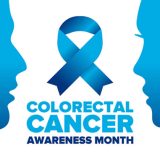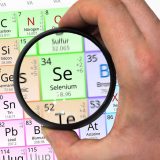

The network that delivers blood to every corner of the body, blood vessels act as the highway of the cardiovascular system, making vascular health essential for overall wellness. While many consider the blood vessels to be deeply buried in the body and untouchable, modern technology is not necessary to influence their health. In fact, blood vessel function is surprisingly easy to access.
Responsible for most of blood vessels’ action, smooth muscle cells are located in blood vessel walls. Smooth muscle cells have evolved to perform two primary functions:
- Contract and Dilate – Under everyday conditions, smooth muscle cells contract and dilate to help regulate the distribution of blood.
- Tissue Repair – When a blood vessel is damaged by a wound or injury, smooth muscles cells change form and lead the repair effort.
Unfortunately, typical consequences of the modern lifestyle can hamper blood flow by their affect on blood vessels’ smooth muscle cells. More specifically, stress can cause blood vessels to constrict, and accumulation inside blood vessel walls can trigger smooth muscle cells to help form plaques.
Mental stress causes the inner layer of the blood vessels to constrict. According to a report in Circulation: Journal of the American Heart Association, researchers believe that this ability may explain why stress increases the risk of sudden cardiac death. Stress is a leading cause of high blood pressure, also known as hypertension.
Smoking and eating a diet high in saturated fat are well known to facilitate atherosclerosis, the buildup of plaque in the blood vessels. When these plaques rupture, they release tissue that can block blood vessels in the heart, causing a heart attack.
Supporting blood vessel health could be as simple as making several lifestyle adjustments. Whether diagnosed with atherosclerosis or hypertension, anyone concerned with their cardiovascular health could benefit from the five following changes:
1. Meditation & Stress Management for Vascular Health
While meditation can come in many different forms, the common denominator in all types of meditative practices is relaxation. By learning how to reduce stress through meditation, individuals can essentially will their blood vessels to dilate.
Why Stress Impacts Vascular Health
Chronic mental stress constricts the inner lining of blood vessels (endothelium) and is associated with high blood pressure and sudden cardiac events. Stress management techniques, including mindfulness and breathing exercises, can help mitigate these effects.
Try this 10‑minute guided meditation to help calm your body and support vascular health by lowering stress and blood pressure.
2. Quit Smoking for Better Circulation
Admittedly, quitting a nicotine habit is far from easy. However, this lifestyle change is crucial for preserving blood vessel health. Smoking delivers a double whammy to the cardiovascular system by instructing the nervous system to constrict blood vessels and enhancing plaques to formulate in blood vessels.
Benefits of Quitting
Even a short period without nicotine allows blood vessels to relax more efficiently, reduces oxidative stress, and slows progression of atherosclerosis.
3. Reduced Saturated Fat & Lower Sodium Improves Vascular Health
Major culprits of blood vessel plaque, saturated fats lurk in many common foods. They are relatively easy to identify because saturated fat is usually solid at room temperature. Typical culprits include fatty beef, lamb, pork, poultry with skin, lard, cream, butter, cheese, full fat milk, baked goods, fried foods, palm oil and coconut oil.
Because salt (sodium) intake is directly related to blood pressure, those with cardiovascular concerns must limit how much salt is consumed. Most of us eat more salt than we should – likely because it is hidden in modern packaged foods. Label reading comes in handy for choosing foods lower in sodium.
Recent data show that reducing sodium intake can lower blood pressure within just one week in many adults, even those already on hypertension medications.
An umbrella review of meta-analyses found that moderately lower sodium intake is associated with reduced cardiovascular risk, improved vascular elasticity, and lower mortality.
5. Dietary Nitrates, Polyphenols & Gut Health
Emerging science supports a powerful role for dietary nitrate (from foods like beetroot, spinach, and arugula) in vascular health. These nitrates convert into nitric oxide in the body, helping blood vessels relax and improving endothelial (lining) function.
The Role of Oral Bacteria in Vascular Health
In addition, research from 2024 highlights the importance of oral nitrate-reducing bacteria — species like Rothia and Neisseria convert dietary nitrate into nitrite, a key step in producing nitric oxide. To support these beneficial bacteria, be careful not to overuse strong antibacterial mouthwashes, which can kill the beneficial bacteria in your mouth. Stick to regular brushing and flossing, and consider milder rinses so these helpful microbes can turn dietary nitrates from foods like beets and spinach into nitric oxide.
Gut Microbiome and Polyphenols
New research reveals that your gut microbiome doesn’t just help digest food — it also plays a powerful role in vascular aging. Beneficial gut bacteria produce metabolites (like short-chain fatty acids) that promote arterial health, while others may drive inflammation.
Polyphenol-rich foods such as berries, cocoa, tea, and grapes, support both your gut microbiota and your blood vessel lining. These compounds boost nitric oxide pathways, reduce oxidative stress, and favorably influence endothelial function.
Additionally, gut-derived phenolic metabolites regulate inflammation and blood pressure, making this a promising area for long-term vascular resilience.
For those who want an easy way to include a broad spectrum of greens, plant polyphenols and botanical antioxidants in one daily scoop, our Superfood Greens Complex offers a convenient option.
6. Consider Nattokinase
Recent research has strengthened support for nattokinase as a potential vascular-health supplement. Studies show it may help reduce blood pressure, support healthy blood flow by breaking down fibrin, and even reduce arterial plaque at higher doses. A large 12-month clinical trial demonstrated significant improvements in carotid plaque size and lipid levels, though only at higher daily doses (e.g., 10,800 FU/day), suggesting its benefits are dose-dependent.
Safety Considerations
Because nattokinase can influence clotting, especially when combined with blood-thinning medications, discuss use with a healthcare provider before adding it to your routine.
Taking care of your blood vessels is the answer to America’s rising rate of cardiovascular disease. Through meditation, stopping smoking, minimizing saturated fat and sodium, and looking into Nattokinase supplementation, you can influence your blood to flow freely and healthfully throughout your cardiovascular system.
Originally posted February 2014. Updated November 19, 2025.




